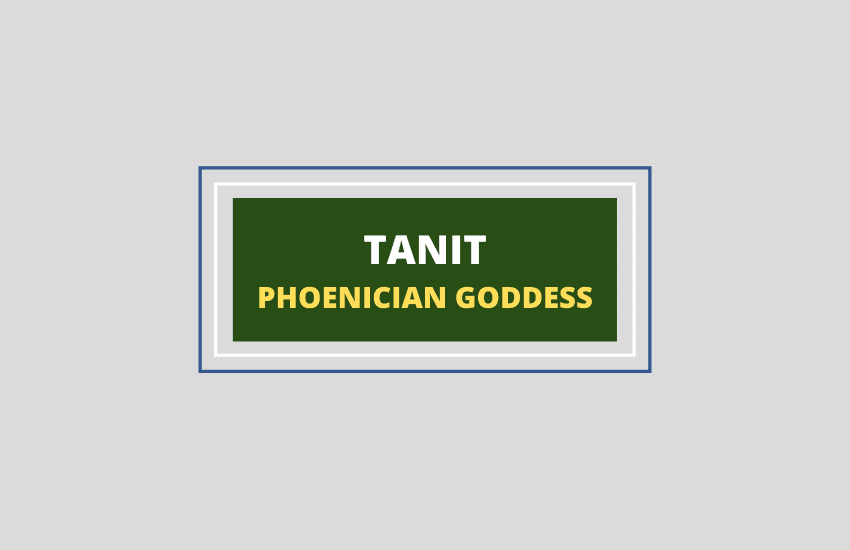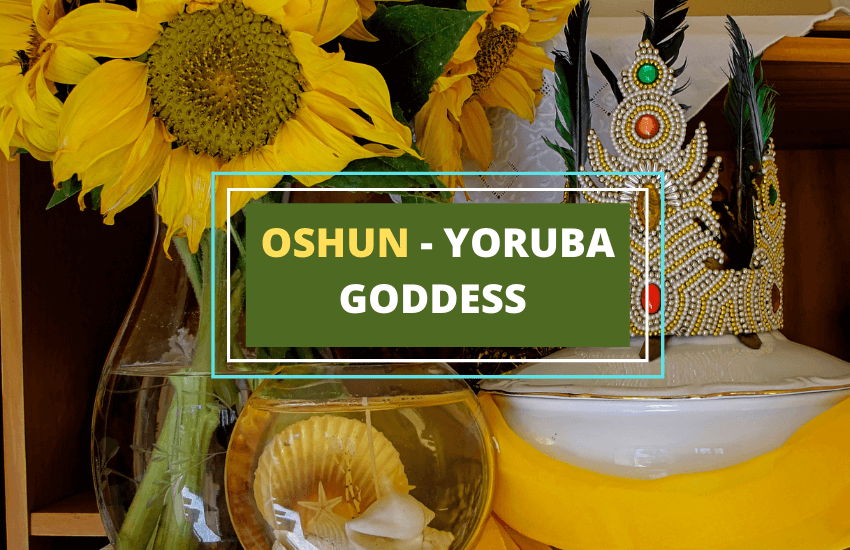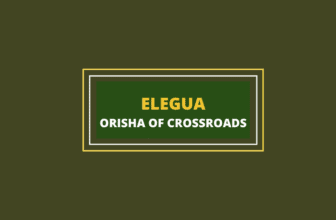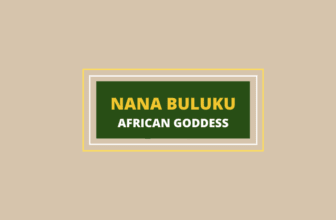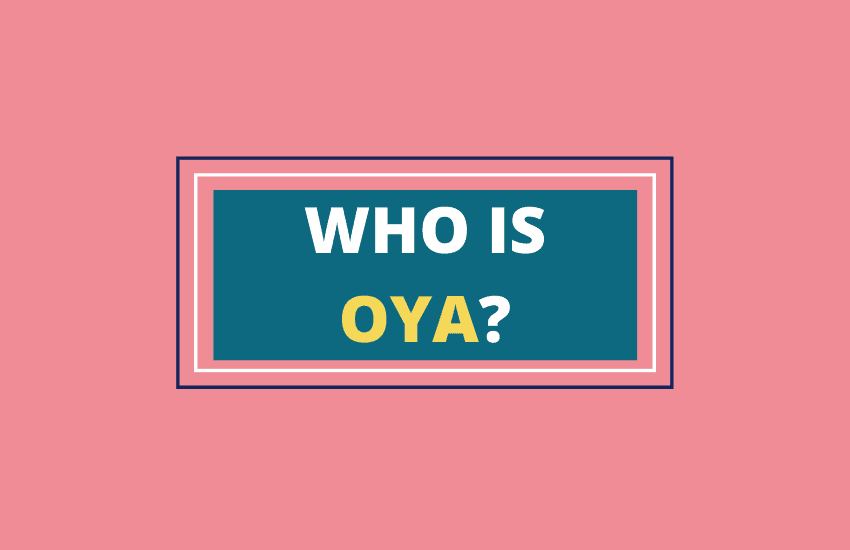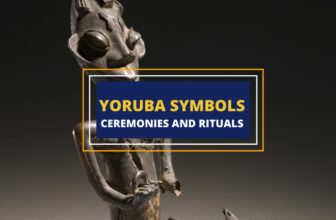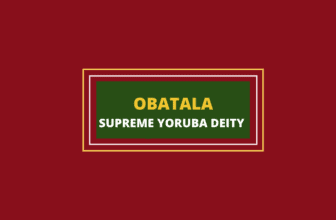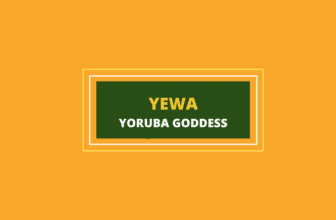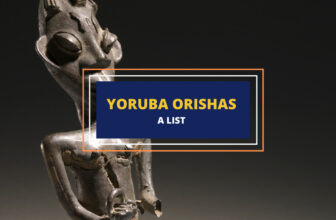An overview of the various African mythologies can either be infinitely long or very short – that’s how complex and different from one another the various African religions and mythologies are.
Bundling all African religions into just one or two groups would be incorrect as each culture, and even each individual tribe, has or has had its own religion and mythology or a variation of a broader mythology.
To try and shed some light on the complex mythologies of the African continent, however, let’s try and quickly cover the basics.
Main African Mythological Groups
The simplest way to categorize the hundreds of different cultures and religions of Africa is to divide them into North African and South and Central African mythologies. This divide is clear thanks to the enormous Sahara desert which has kept people from North Africa almost completely separated from the rest of the continent.
North African Mythologies
These cultures typically include everything on the south shores of the Mediterranean from Morocco to Egypt and down south along the Nile River. For thousands of years, these cultures have developed their own religions and mythologies, separate from Central and South Africa.
There was some interchange of mythological motifs and ideas thanks to nomadic tribes traversing the Sahara or interacting with southern Egypt but such influences were limited. Instead, North African cultures and mythologies were much more influenced by other Arab and European cultures from across the Mediterranean or from the east.
Central and South African Mythologies
People in Central and South Africa managed to keep their cultures and mythologies separate from North Africa and the rest of the world for much longer than that, largely thanks to the Sahara and the surrounding oceans. Because of their geographical position and the harsh climate in which they lived, however, people throughout the rest of Africa were mostly stuck in tribalistic and/or nomadic cultures.
This meant that their religions and mythologies were naturalistic and spiritual – they focused more on everyday rituals and traditions rather than strict societal and complex hierarchical rules. Because of the people’s often nomadic or hunter/gatherer way of life, the different tribes and cultures were also constantly interacting with each other and exchanging myths and concepts.
The result was the creation of various polytheistic, deistic, and pantheistic religions that had lots of similarities with one another as well as many key differences. This means that the various mythologies of Central and South Africa can either be very complicated or easy to explain, depending on how simplistically you want to go about it.
What Type Are Most African Religions and Mythologies?
The different mythologies and religions of Africa come in all shapes and sizes. Many fell in the deistic religious ranges. Most African cultures believed that the universe was created by a god or gods but that they left people to their own devices after creating them.
Other cultures were polytheistic or henotheistic – they believed in a multitude of gods that both created the world and were actively involved in it. Most such polytheistic religions were similar in this concept to other such religions around the rest of the world and North Africa – a complex pantheon of different deities, each representing certain moral traits, animalistic symbols, and/or weather events, and each interacting with other deities in the pantheon in a vast collection of myths.
Contrary to popular belief, there were monotheistic religions in Africa too – the three Abrahamic religions are far from the only or the first monotheistic religions to be created by people.
In Africa, some of the more popular monotheistic religions included those of the Himba people in Namibia who worshipped God Mukuru, the Igbo people with their monotheistic Odinani religion, and the Cushitic people in the Horn of Africa who believed in God Waaq.
African Mythologies and the Abrahamic Religions
For better or for worse, we can’t talk about African mythologies today without addressing the influence of the three Abrahamic religions that spread through the continent during the last several centuries. Judaism, Christianity, and Islam all spread through sections of the continent one after another during the last couple of millennia.
The effects of Judaism were felt first, but this had the slightest influence of the three, as the religion was created in the Middle East, close to northeastern Africa. Since then, Judaism has spread in varying degrees in North Africa in Morocco, Sudan, Tunisia, Egypt, and Algeria, as well as in Ethiopia and Eritrea.
Christianity started influencing North African cultures around the 3rd century AD. However, most of North Africa eventually converted to Islam around the 6th century AD and later on. Centuries later, during the Age of Colonization, Christianity began to spread across the continent in the various European colonies. Even after the liberation of the colonies, most of them kept their newfound Christian beliefs and approximately 49% of the people in Africa now identify as Christians.
Islam has spread beyond North and Eastern Africa. As of today, Islam is a major religion in many regions such as the Swahili Coast, the Horn of Africa, North Africa, Sahel, and much of West Africa. Islam is estimated to be the religion of ~42% of people in Africa today.
With about 91% of people in Africa today believing in either Christianity or Islam, that leaves only 8% that are still following their traditional native African beliefs, religions, and mythologies (with 1% categorized as “Others”). 8% is a very small percentage but it should be pointed out that even among much of the Christian and Muslim population, some rituals and traditions are still kept alive and/or are intertwined with their new beliefs.
African Rituals and Traditions
Native African religiousness, rituals, and traditions vary from religion to religion. However, one of the noticeable trends throughout the continent is less of an accentuation on the dogmatic adherence to religious doctrine, and more of a focus on tradition, reverence to one’s ancestors, and the maintenance of familial and communal relations.
In essence, most religious rituals and traditions of the native African religions are centered around the well-being of the family unit and community, rather than on people forcing their lives into a certain religious doctrine.
Of course, this doesn’t mean that people didn’t actively worship their gods or perform rituals in their names. Most religious cults would still erect altars and shrines, and would even give prayers, ritual offerings, or perform sacrifices to their gods on certain holidays or occasions.
Many of these rituals were focused on the people’s ancestors as well. In most African mythologies and religions there is a cult to the ancestry. People viewed their ancestors as spirits that acted as mediators between the those living and the gods. In that way, their ancestral spirits were granting the people guidance and power.
Many other rituals were focused on the different stages of life such as the beginning or the end of puberty and the corresponding change of social status. African people would perform different initiation rituals ranging from dances and feasts to hunting parties to mark the physical and spiritual growth of everyone in their community. The more a person grew, the more connected they became with their ancestors, with the spirits around them, and with the gods themselves.
In our series of articles on African mythology, we’ve attempted to share myths and stories that continue to be popular in Africa today. We’ve covered many of the gods and goddesses, events, and creatures that make the mythologies of Africa vibrant and dynamic.
